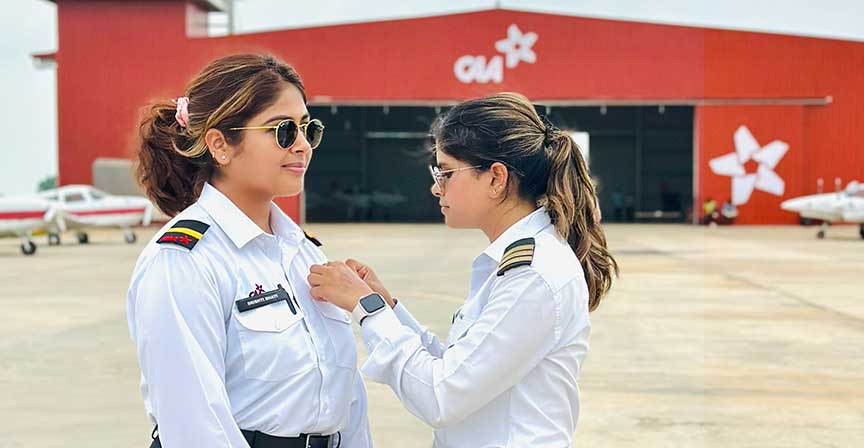Blogs & News

Support Systems at Flying Schools: Making Life Away From Home Easier

Leaving home to join a flying school is both exciting and overwhelming. On one side, there’s the thrill of pursuing your dream of becoming a pilot. On the other hand, there’s the challenge of adjusting to a new lifestyle, new people, and being away from family. That’s why support systems at flying schools matter so much. From housing to mentorship, these systems are designed to make life smoother for cadets.
Let’s look at some of the key ways flying schools support their students:
Housing- A Home Away From Home
Most flying schools provide on-campus or nearby housing for their students. This helps cadets avoid the stress of searching for accommodation in a new city or country.
- Shared hostels or apartments are common, encouraging bonding among students.
- Basic facilities, such as meals, laundry, and internet, are often included, allowing cadets to focus on training instead of daily chores.
- Living close to campus also means shorter commutes, more rest, and more time for studies.
For many students, these housing facilities become their second home, where they form friendships that last a lifetime.
Mentorship- Guidance From Those Who’ve Been There
Learning to fly isn’t just about mastering technical skills – it’s also about developing confidence, discipline, and decision-making. That’s where mentors come in.
- Senior pilots, instructors, or alumni often guide new cadets through the ups and downs of training.
- Mentors share practical advice, from exam prep to career planning.
- Having someone who has “been there, done that” makes the journey less intimidating and more inspiring.
Good mentorship helps cadets stay motivated and transparent about their long-term goals.
Counselling- Support for the Mind and Heart
Being away from home, handling the pressure of studies, and adjusting to a demanding lifestyle can sometimes feel overwhelming. Flying schools today understand this and offer professional counselling services.
- Trained counsellors are available to help with stress, anxiety, or homesickness.
- Group workshops on time management, teamwork, and coping skills are also common.
- Emotional well-being is treated as seriously as physical health, because a calm mind is key to safe flying.
This support ensures that cadets don’t feel alone when challenges arise.
Life Away From Home- Finding Balance
Flying schools also create opportunities for cadets to feel part of a community.
- Cultural events, sports activities, and social gatherings help students unwind and connect.
- Clubs, interest groups, or volunteer opportunities allow cadets to explore life beyond academics.
- International schools often bring together cadets from different countries, making the experience culturally rich and exciting.
Such activities help students strike a balance between training and personal growth.
Becoming a pilot is a dream that requires hard work, focus, and resilience. Flying schools know that their students need more than just technical training – they need a supportive environment that feels like family. Housing, mentorship, counselling, and community activities all play a big role in shaping not just skilled pilots, but also confident, well-rounded individuals.
In short, while flying schools teach you how to fly planes, their support systems teach you how to fly through life away from home.


